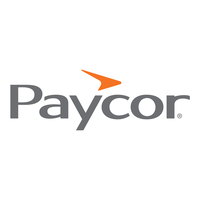
What is Human Resources Information Systems Software?
Human resources information systems (HRIS) software provides features and functionality that enable HR personnel to complete their day-to-day tasks and responsibilities in an efficient way. HR responsibilities include entering data and organizing employee information, managing job positions and descriptions, tracking applicants, onboarding new hires, tracking attendance, managing payroll, time-off, and benefits, and ensuring labor laws and regulations compliance.
An HRIS provides the technology platform so managers, HR teams, and employees can create, update, and communicate information related to these activities. Further, HRIS tools simplify and streamline tasks and processes through automation and online collaboration.
The best HRIS systems safely store vital employee information and make the information available only to HR personnel and company employees with the right permissions.
Paycor
Paycor provides human capital management solutions for organization leaders and HR teams. Its online HRIS software helps automate routine tasks and drive efficiencies across the organization. It has essential features such as employee record-keeping that enables users to access, edit, and update employee information including timecards, pay rates, and contact information in one place.
Paycor system automation that includes automated workflows, reminders, and notifications helps streamline HR management tasks and employee communications. The HRIS system also has centralized document and form storage, a self-serve portal, personalized employee experience, performance reviews, built-in communication tools, and an HR support center.
Pros
- Integrated payroll software
- Ease of setup and use
- Timekeeping capability
Cons
- Limited report customization
- Missing automation features, especially in taxes
Types of HRIS Software
There are 4 major types or classifications of HRIS software in helping users carry out daily tasks.
Operational HRIS
Operational HRIS software provides HR managers with data required to support routine and repetitive HR decisions including detailed personal and professional employee information, position information within the organization, and performance appraisal data.
Tactical HRIS
Tactical HR information systems provide data to support decisions regarding the allocation of resources. Managers use the data from these systems to guide decisions regarding job analysis and design, recruiting, compensation and benefits, and employee training and development.
Strategic HRIS
Strategic HRIS software supplies managers with information they can use for managing labor resources and workforce planning. It provides important information as organizations make expansion plans to determine if they have enough quantity and quality of workforce to achieve their goals.
Comprehensive HRIS
Comprehensive HRIS software centralizes all HR-related information into a single, secure, and accessible database for streamlined operations. It provides various views and easy management of HR files, employee information, positions, skills inventory, affirmative action files, OSHA, and compliance documents.
Essential HRIS Software Features
As technology used in HR platforms improves, HRIS software providers have also added innovative tools, features, and capabilities, classifying their products as HRMS or HCM systems. Users in search of an HRIS solution should look for the following essential features:
Employee Information Database – The heart of an HRIS is a central storage of accessible organized information database of employees.
Self-service Portals – Enables managers and employees to view, update, and retrieve information, as well as submit, review, and approve requests.
Time and Attendance Tracking – Simplifies leave requests and payroll runs. Today, many HRIS software also include built-in payroll capabilities or integration.
Applicant Tracking System – Allows HR personnel to consolidate information about applicants, job postings, interview schedules, assessments and job offers.
Onboarding – Automated onboarding workflows free up much time from HR staff and enable them to focus on improving new hire experience.
Benefits Administration – Lets users manage company-offered benefits and assists employees in enrolling or updating benefits available to them.
Reporting – The centralized database in HRIS can facilitate the easy generation of various standard and ad-hoc reports for different stakeholders.
Integration – Most HRIS software are now able to directly integrate with other HR and business tools such as payroll, training and development, or performance management.


